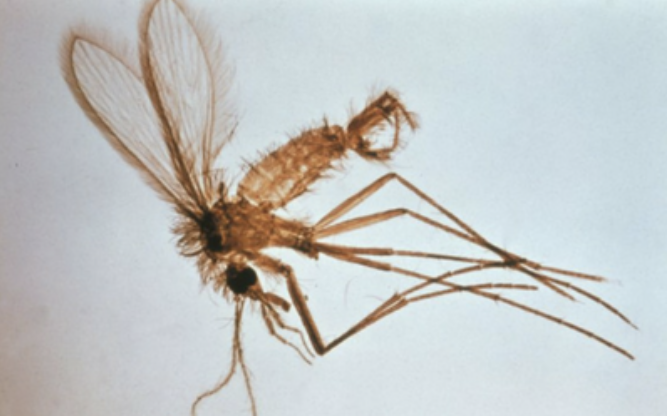Leishmaniasis in dogs: Adopting a dog with Leishmaniasis can seem daunting, especially for adopters in the UK as it is a disease we have never heard of. That is because it is not a disease the UK suffers with due to difference in temperature and the lack of the vector, the Sand Fly. Here are some of our frequently asked questions:

Canine Leishmaniasis or Leish is a disease caused by a bite from a sand fly. In areas where sand flies are, like Cyprus, dogs can be infected, however, only about 5% – 10% of infected dogs will ever develop symptoms or active Leish.
Leishmaniasis in dogs is treatable but not curable. There is no vaccine to prevent Leishmaniasis in dogs. Correctly treated and monitored Leish dogs have a good quality of life.
Before a dog flies from Cyprus a blood test is done. If Leish positive the dog will be treated in Cyprus to stabilise the disease.
Symptoms can be varied and not all dogs will show all (if any) symptoms. It is therefore very important for Leish positive dogs to have regular blood tests (see below).
There are two forms of Leishmaniasis in dogs:
Other signs and symptoms of Leishmaniasis in dogs include:
If you suspect Leish, dogs need to be blood tested as soon as possible. The earlier Leish is diagnosed and treated, the better the prognosis for the dog.
Dogs can develop active Leish after coming to the UK. There is no specific trigger for this, but it is believed that physical or mental stress, steroids, unnecessary vaccines, and a weakening of a dog’s immune system can be contributing factors.
To transfer Leish, a vector (the sand fly) is needed to spread from host to host. In the UK the conditions are too wet and windy for sand fly to survive. It would be extremely rare for a dog to pass it to another dog as it requires blood to blood contact and during a time when the disease is active. Even with these exact circumstances it is still unlikely for the disease to be passed onto other pets or humans and there has never been a case of Leishmaniasis being transferred from an infected pet.
Many of our adopters have a Leish positive dog living with a Leish negative dog without any transfer of the disease.
You can get a Leish dog covered by insurance but your policy is unlikely cover Leish.
Dogs with positive Leish tests will require Allopurinol (a human gout medication readily available in the UK) for around 18 months, or until the dog has had three clear sets of six-monthly blood tests. Some dogs need it for life, others don’t. If the disease becomes active, then other medication is needed such as Milteforan (an oral solution that needs to be given in food bombs) or Glucantime which is injected. If needed, we will work with you and your vet and advise on how to get and administer the medication. Allopurinol will continue to be given throughout the course of treatment of either of these two drugs.
Your dog will arrive in the UK with a few months supply of tablets. You then need to ask your vet for a ‘Cascade’ prescription. Most vets will provide this for a 3- or 6-month period. You can then order the tablets online which is a cheaper alternative to the vet supplying them.
To order online:
Weldricks Pharmacy – https://www.weldricks.co.uk/ (costs approx. 7p/tablet).
20mg per kilo per 24 hours split into a minimum of two doses.
Allopurinol comes in 100mg and 300mg tablets.
For example: A 20kg dog will have 200mg in the morning and 200mg in the evening.
Dose 1 and Dose 2 should be 12 hours apart.
A tablet/pill cutter can be useful (available from Amazon).
General blood tests to monitor the dog’s general health status and activity of Leish should be done every 6 months, until three clear sets of tests are achieved.
Blood tests recommended are:
On receipt of the tests we can help explain the results to you and work with your vet to determine the best course of treatment.
A urine test should also be carried out.
To have all the above tests can cost between £290 and £550 depending on how expensive your vet is and whereabouts you live in the UK.
As one of the treatments is Allopurinol this can create ammonium crystals in the urinary system. A low purine diet is therefore needed avoiding high purine foods such as peas, cauliflower, spinach and offal. Low phosphorous food is also needed if the dog has any kidney problems. Apple Cider Vinegar can help with eliminating crystals and dissolve stones.
All adopters of Leish positive dogs will require veterinary support, for blood tests and ongoing monitoring/assessment of their dog’s health, so it is important to build a good working relationship with a UK vet, who is willing to learn about Leish and to support their client. There are many of them about. Ask your vet to go to www.leishvet.org and follow their diagnostic and treatment protocols. They are a group of highly experienced vets from endemic countries and their website is written by vets and for vets.
We are always here to help and support you. If you have any concerns about your dog’s health, please contact us – we can get advice from vets in Cyprus who are very experienced in dealing with Leish. There is also an amazing Leish support group on Facebook, called Living with Leish, where admin provide free advice from diagnosis, to sourcing of drugs and treatment methods.